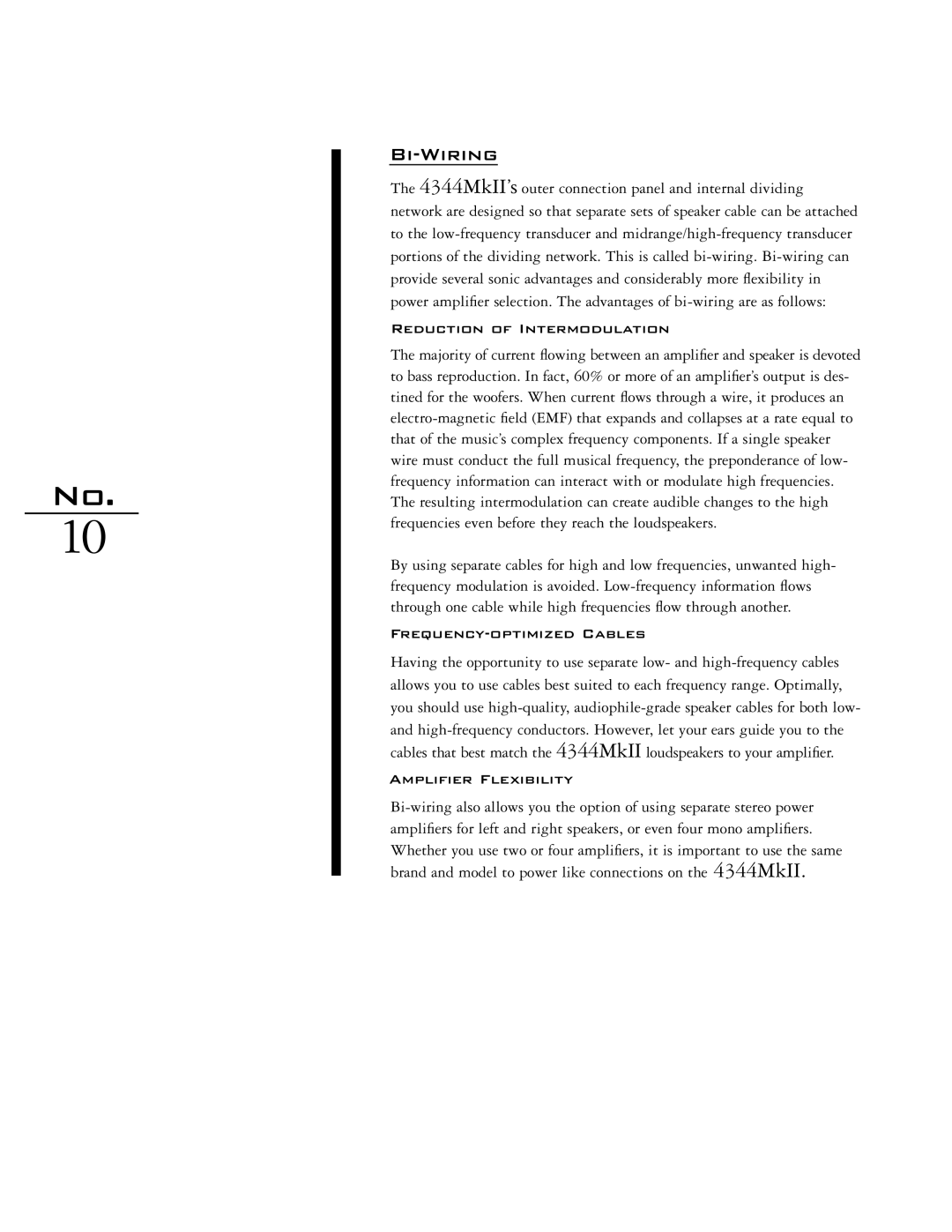Bi-Wiring
The 4344MkII’s outer connection panel and internal dividing network are designed so that separate sets of speaker cable can be attached to the low-frequency transducer and midrange/high-frequency transducer portions of the dividing network. This is called bi-wiring. Bi-wiring can provide several sonic advantages and considerably more flexibility in power amplifier selection. The advantages of bi-wiring are as follows:
Reduction of Intermodulation
The majority of current flowing between an amplifier and speaker is devoted to bass reproduction. In fact, 60% or more of an amplifier’s output is des- tined for the woofers. When current flows through a wire, it produces an electro-magnetic field (EMF) that expands and collapses at a rate equal to that of the music’s complex frequency components. If a single speaker wire must conduct the full musical frequency, the preponderance of low- frequency information can interact with or modulate high frequencies. The resulting intermodulation can create audible changes to the high frequencies even before they reach the loudspeakers.
By using separate cables for high and low frequencies, unwanted high- frequency modulation is avoided. Low-frequency information flows through one cable while high frequencies flow through another.
Frequency-optimized Cables
Having the opportunity to use separate low- and high-frequency cables allows you to use cables best suited to each frequency range. Optimally, you should use high-quality, audiophile-grade speaker cables for both low- and high-frequency conductors. However, let your ears guide you to the cables that best match the 4344MkII loudspeakers to your amplifier.
Amplifier Flexibility
Bi-wiring also allows you the option of using separate stereo power amplifiers for left and right speakers, or even four mono amplifiers. Whether you use two or four amplifiers, it is important to use the same brand and model to power like connections on the 4344MkII.

